Bella+Canvas is a well-known fan favorite amongst businesses ranging from small coffee shops to large companies, as well as independent searching for blanks, merch, and customizable clothing. Their reputation as a reliable supplier in the U.S. buyer-to-buyer industry has earned them significant attention. However, while Bella+Canvas markets itself as ethical and environmentally conscious, a closer examination raises questions about whether it lives up to its sustainable image.

Is Bella+Canvas Fast Fashion?
In short, no – but don’t let that be enough reason to give them a free pass.
Bella+Canvas doesn’t fit the traditional definition of fast fashion. It avoids rapid trend cycles, mass production of fleeting styles, and garment churn common in the industry. Their standardized designs and production processes reduce waste associated with unsold inventory and seasonal overproduction.
That said, sustainability extends beyond avoiding fast fashion practices. Factors such as material sourcing, environmental impact, waste management, and social responsibility are equally critical. It’s here that Bella+Canvas falls short.
Is Bella Canvas Sustainable?
While Bella+Canvas offers a simple, consistent service, designs, and production processes this isn’t something you should take as gospel, just to reiterate – while they may not be fast fashion it doesn’t mean they are sustainable.
Bella+Canvas’ business model, offers wholesale apparel orders to a vast range of businesses across the U.S. This scale amplifies their environmental and social footprint both positively and negatively. Sustainable practices could create a significant impact, but the opposite is true for unsustainable operations, making the blanks and buyer-to-buyer businesses an important topic to focus on.
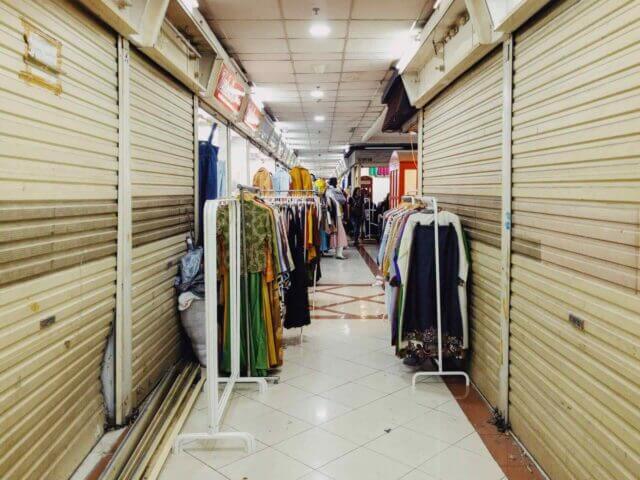
Bella+Canvas makes various sustainability claims, which at face value seem pretty convincing, but these claims fall short of robust, actionable commitments.
Just to give you some insight, Bella+Canvas doesn’t acknowledge the end of the lifecycle of the garments, portraying quite a common ‘out of sight out of mind’ mentality found in the apparel industry. Although they use eco-friendly fabrics this isn’t a majority of their sourcing and is something that has been stagnant for years. Furthermore, while there are great initiatives like their use of solar energy and water recycling, Bella+Canvas lacks a long-term sustainability plan for becoming carbon neutral.
Slow progress and gaps in sustainability initiatives indicate more of a halfway commitment to sustainability rather than a robust long-term commitment to sustainability, which is particularly concerning given their wholesale production model. It seems that this halo of sustainability around Bella+Canvas’ sustainable image needs to be dispelled and debunked to drive real actionable change.
What Materials Does Bella+Canvas Use?
In terms of materials, less than 50% of the fabrics used are eco-friendly. From a brief overview of the material inputs for their garments, most pieces use an unsustainable combination of polyester and cotton. While cotton definitely can be sustainable if the correct practices are in place to harness it sustainably, it is often the case that these practices aren’t utilized. Large-scale overconsumption of water occurs putting stress on water resources, alongside soil degradation and pollution from pesticides and fertilizers.
Bella+Canvas in a few of their products have utilized recycled polyester and cotton in a few of their pieces which is a much more environmentally friendly solution, however, the catch here is that this isn’t incorporated across their whole collection. For years, their incorporation of sustainable materials has stagnated, raising concerns about their commitment to continuous improvement.
Is Bella+Canvas Carbon Neutral?
No, Bella+Canvas isn’t carbon neutral. Although they have made efforts through initiatives like solar energy use at their manufacturing facilities and water recycling programs including a reduced use of water in production, they lack a detailed, long-term carbon neutrality program.
Moreover, there is no comprehensive disclosure of total greenhouse gas emissions, especially supply chain emissions (Scope 3), nor is there evidence of significant investment in low-carbon manufacturing technologies. It seems like again, the initiatives that are being taken, which should be recognized positively, just aren’t part of a passionate, fully invested, long-term commitment to sustainability.
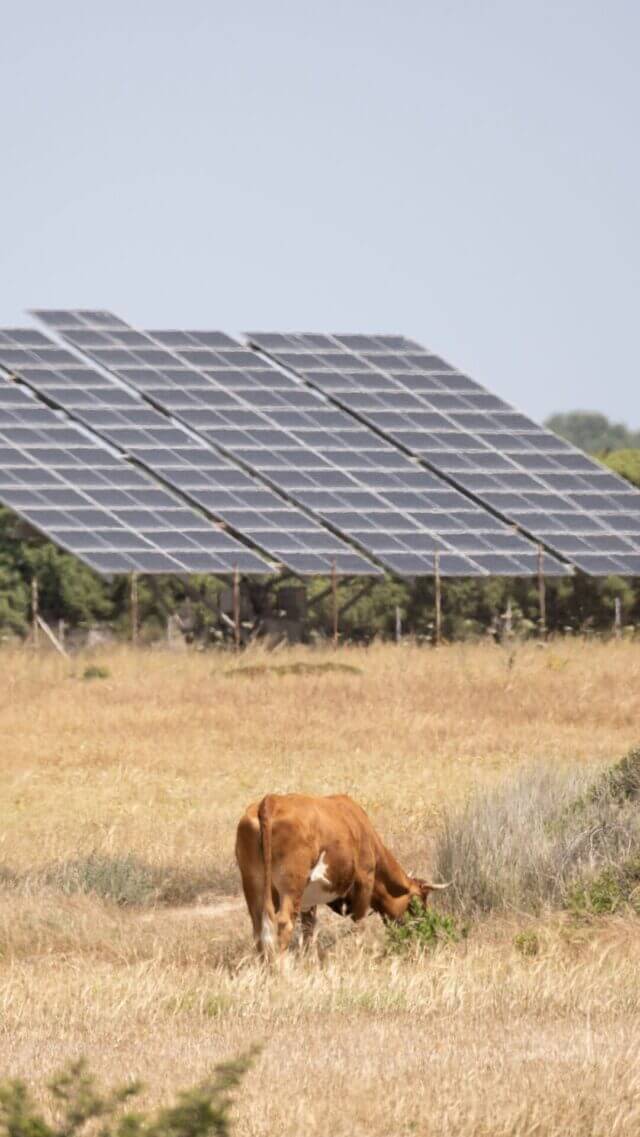
Does Bella+Canvas Have a Clothing Recycling Program?
Again the answer is, unfortunately, no. There’s no mention of any program for garment recycling, upcycling, redistribution, or waste management. This omission is particularly concerning in the wholesale apparel sector, where large volumes of clothing are produced, and have to end up somewhere. Without a program or initiative to catch these waste items, it’s a pretty reliable assumption that garments will end up in landfills.
A recycling initiative could help minimize waste and extend product life cycles, reducing the emission of individual garments and the need to produce new garments.
Is Bella+Canvas Ethical?
Bella+Canvas markets itself as an ethical brand, citing its WRAP (Worldwide Responsible Accredited Production) certification and Fair Labour compliance. WRAP ensures safe, legal, and ethical manufacturing practices. In comparison to fast fashion, WRAP ensures clothing isn’t made in sweatshops. Additionally, the company is transparent about its factory locations and suppliers which is commendable.

However, their ethical claims are not without flaws:
- No Living Wages: While a WRAP certification ensures workers receive at least minimum wages, there is no evidence that Bella+Canvas ensures living wages. This is such a crucial step in sustainability as minimum wages often fail to meet basic living costs, leaving workers vulnerable. Bella+Canvas falls short of promising fair livable wages.
- No Workers Wellbeing Programs: Bella+Canvas don’t provide evidence of schemes to improve workers’ well-being whether that be through providing healthcare access, transport subsidies, benefits, or community development initiatives which would all contribute to a more positive fair working and personal life for employees.
It’s this neglect of ethical treatment of workers that make us question whether Bella+Canvas deserves their ethical reputation. It’s a sad reality today where many brands benefit from labeling themselves as ethical and sustainable, securing a benchmark level of sustainability and in this case, having a long-term WRAP certification, but taking little action beyond getting the certificate. Sustainable fashion isn’t a quick short-term fix, it involves long-term plans and a commitment to practices that will instill positive environmental and social change.
Where are Bella+Canvas Clothes Made?
Bella+Canvas is transparent about its production locations, with manufacturing in India, Central America, and South Korea. This openness about the location of their facilities is a positive aspect of their operations.
Is Bella+Canvas Vegan and Cruelty-Free?
Again another positive aspect of Bella+Canvas’ products is that they do not use any animal-derived materials.
Bella+Canvas Brand Rating
Now that we’ve outlined what Bella+Canvas is about, let’s delve into how their brand aligns with our ethical brand guide rating. P.S. If you’re interested in seeing how we go about rating different brands, take a look here.
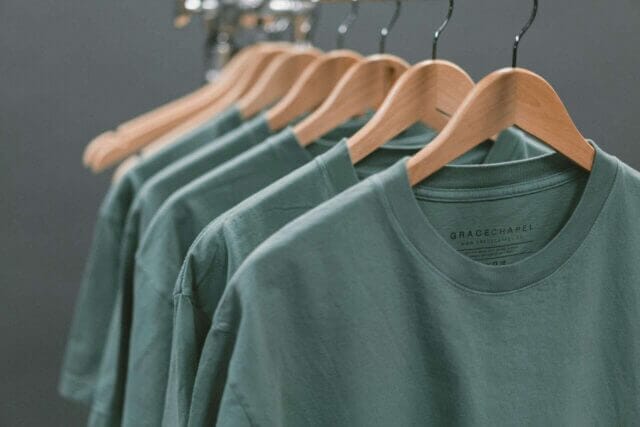
Transparency 9/14
Bella+Canvas demonstrates partial transparency by openly sharing information about their final production stages, including manufacturing processes, locations, and conditions. They provide a list of factories, specifying worker numbers and suppliers, which allows consumers to investigate these facilities further. This disclosure is complemented by their code of conduct requirement for suppliers, though compliance remains uncertain without additional oversight or transparency measures.
However, Bella+Canvas has notable shortcomings in supply chain traceability. While their website includes a supply chain map, the details are sparse, offering little insight into how much of the supply chain is represented or the conditions throughout. This limited engagement in traceability programs restricts their ability to address concerns beyond the final manufacturing stages.
Moreover, Bella+Canvas lacks significant participation in environmental and human rights programs beyond their production facilities. This oversight means they fail to comprehensively address the broader impacts of their operations on labor standards and the environment outside the manufacturing process. By improving transparency and engagement across their entire supply chain, Bella+Canvas could take meaningful steps toward addressing these gaps.
Fair Labor 5/33
In terms of fair labor it is clear Bella+Canvas score a lot less successfully, with only 5/33. Their WRAP certification and engagement in regular audits of their first-tier facilities (factories and workshops) is something they do well. Furthermore, their publicly available code of conduct
aligns with the Fair Labor Association (FLA) standards, ensuring compliance with international labor laws. While they adhere to certifications and offer some structural policies, their implementation and depth in promoting worker rights are less successful.
While WRAP certification ensures workers are paid at least minimum wages, there’s no evidence that Bella+Canvas guarantees living wages – a key aspect of ethical labor. They also fail to disclose how many workers, if any receive a living wage. Beyond wages, Bella+Canvas lacks initiatives aimed at improved worker well-being, such as healthcare access, transport, or housing allowance, whilst also lacking evidence of any worker engagement initiatives such as programs to promote union capacity building. This lack of investment in their workers gives them little say in advocating for their rights or contributing to how they want their communities to feel and be improved.
Without a stronger commitment to workers’ welfare and greater transparency in labor practices Bella+Canvas lags behind truly ethical brands.
Sustainably Made 21/49
Bella+Canvas score moderately on sustainability, earning 21/49.
While they demonstrate awareness of their environmental impact and take some positive steps, their overall approach and ethos lack ambition and comprehensive action.
To just touch on what they do well, Bella+Canvas does recognize the link between social and environmental impacts, as reflected in their website language and stated goals. They focus on energy efficiency by using solar energy to power their manufacturing facilities, contributing to reduced greenhouse gas emissions, alongside recycling water during manufacturing, their animal-free policy and chemical management, and banning the use of hazardous chemicals in production, validated through their use of bluesign approved partners.
However, they fall short on carbon neutrality, waste management, raw materials, and degrowth initiatives. Having explored the material inputs of a range of their products less than 50% of them use environmentally sustainable material, frequently turning to polyester, nylon, and cotton all contributing to air and water pollution amongst many other impacts. Bella+Canvas provides little evidence of efforts to increase the use of sustainable materials, so to claim that they are truly ethical and sustainable seems a bit of a stretch. The brand lacks closed-loop capabilities that involve dealing with the fallout of their products i.e. the end of the lifecycle of products, whether that be to extend their lifespan through take back or repair schemes, or recycling products. Concerning carbon neutrality, Bella+Canvas doesn’t disclose their total greenhouse gas emissions, including their crucial scope 3 emissions which represent the largest environmental impact in a supply chain and would be such an informative piece of information to consumers and certification boards.
Thinking ahead to the future, Bella+Canvas doesn’t promote any degrowth practices like rentals, resale, or alternative consumption models that reduce demand for new production and could become a more integral part of our consumption.
Our Principles -10
Regarding our 3 principles at Eco-Stylist: first, Bella+Canvas isn’t a fast fashion company, so they don’t earn any negative points there. Second, we trust the information they provide, so no negative points there either. Our third principle is “Do they inspire us?” and here they fall short. We don’t feel they are taking enough ongoing steps for future sustainable and ethical progress, and for that, they earn negative 10 points.
Bella+Canvas Overall Score – 25/100
Overall Bella+Canvas scores 25/100. While they score relatively well on transparency they fall short on sustainability, ethical labor practices, and innovation. Bella+Canvas positions itself as a more ethical alternative to fast fashion, but its commitments lack depth and forward momentum. Commitments like WRAP and bluesign provide a baseline, but without meaningful action to ensure fair wages, improve worker well-being, and tackle supply-chain emissions, they fail to meet the standards of truly ethical and sustainable brands.
It all falls back to the idea that without ongoing work and passion for creating positive change, environmental and social certifications aren’t going to be a quick fix to the issues faced in the fashion industry. It’s clear the fashion industry needs leaders who drive change – not companies that rely on certifications to mask static practices. Bella+Canvas has potential but needs to innovate and invest to live up to its reputation.
Ethical Bella+Canvas Alternatives
So that we don’t leave you hanging we’ve provided some of the best alternative brands for you to choose from. Suppose you’re looking for customizable t-shirts, merch for your business, wholesale clothing orders, sustainable blanks, or simply some basics to add as a staple to your wardrobe. In that case, we’ve researched 3 of the best, so you can be assured your consumption is directed towards more sustainable and ethical means.
1) KNOWN SUPPLY

Our first ethical alternative we would highly recommend taking a look at is Known Supply. Offering customizable, ethically made basics, Known Supply is great for layering pieces and creating your perfect capsule wardrobe so you won’t have to fork out for new pieces every season or time a new trend rolls around.
On a more serious note, Known Supply is Fair Trade certified, beyond certifications though, they are well known for honoring those that make their clothes, giving workers voice and appreciation for their service through signing each garment they produce. This also makes garments personable but also traceable and transparent in terms of where and thus how they were made. Known Supply also uses organic cotton as their main fabric, prioritizing sustainable materials as opposed to incomplete incorporation of sustainability into their sourcing and materials.
2) GOEX
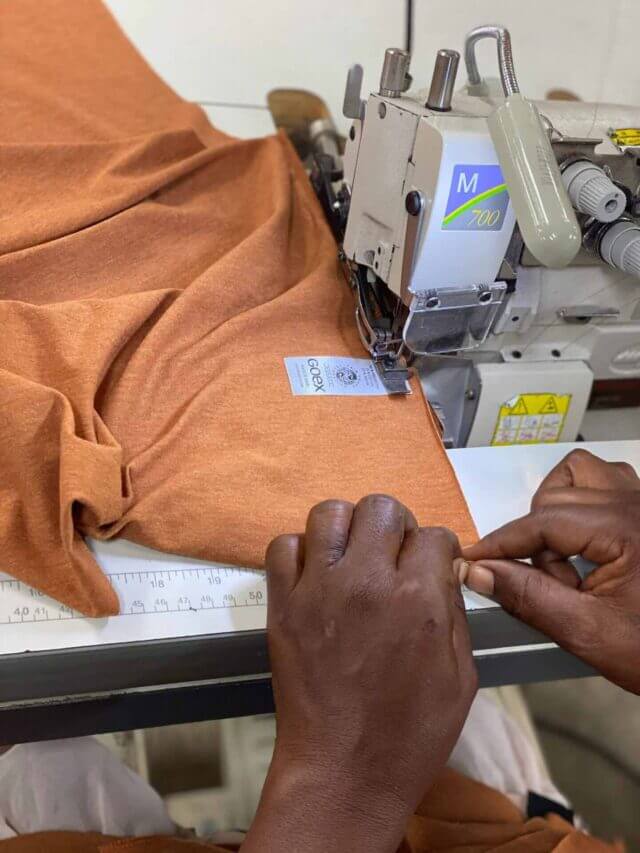
GOEX offers sustainable blanks but also custom-printed t-shirts, perfect for coffee shops wanting to order great uniforms for their staff, or merch to promote their brand. GEOX presents an ethical choice through their fair pay system whereby everyone earns enough on average to support a family of 6, a suitable living wage for their workers in Haiti and Kansas City where they are based. They have passed the Fair Trade Federation’s pretty rigorous screening and 9 principles and are now partnering with the Good Tee selling t-shirts wholesale under a certified B-Corp reassurance, which makes them a great alternative offering very similar services to Bella+Canvas.
Furthermore, environmentally GOEX is also a great pioneer in sustainability, making the majority of their clothing with their eco ‘tri-blend’. This consists of recycled polyester, organic cotton, and rayon, and involves around 5 plastic bottles being repurposed with the production of each t-shirt.
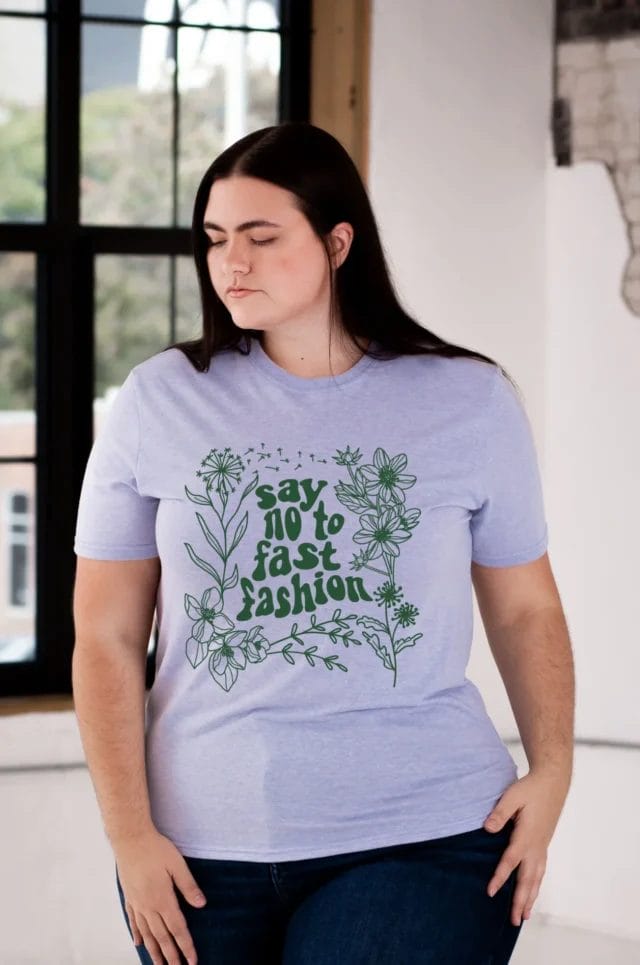
3) Teemill

For those seeking genuinely sustainable and ethical blanks for customization, Teemill is a great alternative. They are a platform that allows you to make and sell organic t-shirts online, providing a free, accessible service, Teemill’s factories are powered with renewables, actively taking steps to consistently reduce their environmental footprint.
They use GOTS-certified organic cotton and only supply clothing that’s ethically made under the SA8000 certification, which ensures workers are paid living (not just minimum) wages, under robust health and safety standards that are underlined by the International Labor Organization (ILO) standards. Their GOTS-certified cotton clarifies that the cotton apparel you are purchasing is organic but also that the whole supply chain involved in producing that cotton garment is ethical and sustainable.

More Sustainable Alternatives
To wrap up, while Bella+Canvas may not be fast fashion, its sustainability and ethical commitments leave much to be desired. For businesses and creators seeking truly sustainable solutions, exploring alternatives and doing your research ensures your products align with stronger ethical and environmental values.
If you are interested in ordering sustainable blanks from any of these companies we have a more detailed guide of how to go about this. And for more certified sustainable brands check out our brand guide.

Grace is graduating from the University of Sheffield this summer after studying Geography. She loves all things sustainability and fashion, spending her time making and up-cycling clothes. She also has a new found love for writing and a passion to help make positive change in the world.









